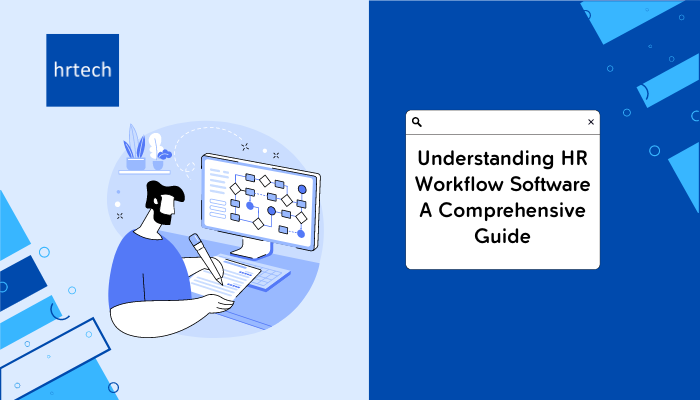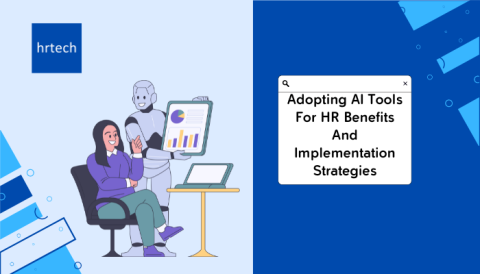In today’s fast-paced business environment, HR workflow software has become an essential tool for managing and optimizing human resource processes. This comprehensive guide aims to provide a detailed understanding of HR workflow software, its importance, and its benefits in modern businesses.
Importance Of HR Workflow Software In Modern Business Environment:
HR workflow software plays a crucial role in streamlining and automating various HR processes, such as timesheet approvals, onboarding and offboarding employees, and managing personnel changes. It helps businesses improve efficiency, productivity, and compliance while reducing manual labor and handling of products. By automating routine tasks, HR workflow software allows employees to focus on high-value tasks and contributes to the development of a more engaged and productive workforce.
Scope of the content and its significance
This guide will cover the key features and benefits of HR workflow software. We will also discuss the importance of choosing the right HR workflow software for your business and how it can help you stay ahead in the competitive market.
Definition Of HR Workflow Software:

What HR Workflow Software is?
HR workflow software is a tool that automates and streamlines the flow of work in various human resource processes. It helps in managing employees, automating document approvals, and enhancing overall HR efficiency.
Identification of key components and features:
Key components and features of HR workflow software include business process automation, operational efficiency, reduction of mundane tasks, error reduction, paperless processes, smoother approval processes, enhanced compliance, time and cost savings, and increased staff performance.
Overview of primary functionalities:
The primary functionalities of HR workflow software involves automating repetitive HR tasks such as onboarding, offboarding, leave management, employee transfers, and document approvals. It also helps in creating customizable workflows, integrating with other systems, and reducing the time dedicated to administrative tasks.
Importance Of HR Workflow Software:
Discussion on efficiency and productivity uplifted due to HR Workflow Software
helps businesses to improve efficiency and productivity by automating routine HR tasks, reducing manual labor, and streamlining workflows. It allows HR managers to focus on high-value tasks, such as talent management and employee engagement, leading to a more engaged and productive workforce.
Examination Of Cost-saving Benefits:
HR workflow software can help businesses to save time and money by reducing the need for manual labor, paper-based processes, and error correction. It also helps in reducing the cost of compliance by automating compliance-related tasks and reducing the risk of non-compliance.
Insight into improved compliance and reduced human-error incidents:
HR workflow software helps in improving the compliance by automating compliance-related tasks, such as document approvals and employee record-keeping. It also reduces the risk of human error by automating routine HR tasks, such as data entry and document management. This leads to a more efficient and accurate HR process, reducing the risk of compliance-related incidents and errors.
Essential Features To Look Out For In An HR Workflow Software:
Automation abilities and their impacts:
HR workflow software’s automation abilities reduce errors, cut costs, bridge process gaps, save time, improve productivity, enhance process efficiency, boost employee morale, and increase profitability. Automation impacts HR processes by streamlining repetitive tasks, reducing manual effort, and improving overall operational efficiency.
Ease of integration with existing systems:
The software should offer seamless integration with existing systems, enabling businesses to manage all aspects of human resources efficiently. This integration simplifies processes, reduces complexity, and ensures compliance with global standards.
Data analytics and reporting capabilities:
HR workflow software with robust data analytics and reporting capabilities provides real-time insights, better workload management, and increased operational efficiency. It allows businesses to engage in continual improvement of workflows and make informed decisions based on the data.
Employee self-service options:
The software should offer employee self-service options, allowing employees to manage their information, request time off, and access relevant HR resources. This feature saves time, increases staff performance, and enhances employee experience.
Customizable workflows:
Customizable workflows enable businesses to define and automate various HR processes, such as recruitment, onboarding, performance appraisals, and employee training. This flexibility allows for the establishment of complex and differentiated approval flows, tailored to the organization’s specific needs.
How HR Workflow Software Streamlines Various HR Processes:

Recruitment and Onboarding:
HR workflow software streamlines the recruitment and onboarding process by automating tasks such as resume screening, interview scheduling, and offer letter generation. It also helps in managing employee data, ensuring compliance with regulations, and providing a seamless onboarding experience for new hires.
Employee Performance Management:
HR workflow software simplifies employee performance management by automating tasks such as performance evaluations, goal setting, and feedback collection. It also helps in tracking employee progress, identifying areas for improvement, and ensuring consistent performance standards across the organization.
Time and Attendance Monitoring:
HR workflow software streamlines time and attendance monitoring by automating tasks such as leave requests, time sheet approvals, and payroll processing. It also helps in tracking employee attendance, ensuring compliance with labor laws, and providing accurate payroll information.
Payroll and Compensation Management:
HR workflow software simplifies payroll and compensation management by automating tasks such as salary calculations, tax deductions, and benefit administration. It also helps in ensuring compliance with payroll regulations, providing accurate compensation information, and maintaining employee satisfaction.
Employee Engagement and Surveys:
HR workflow software enhances employee engagement and surveys by automating tasks such as survey creation, distribution, and analysis. It also helps in tracking employee feedback, identifying areas for improvement, and ensuring a positive work environment.
How To Choose The Right HR Workflow Software For Your Business:
To choose the right HR workflow software, businesses should determine their specific needs and requirements. This involves identifying the HR processes that need automation, the size of the organization, and the number of employees. The software should cater to the specific needs of the organization and offer easy operability with a simple and intuitive user interface.
Businesses should evaluate the capabilities and reputation of the vendor before selecting HR workflow software. This involves researching the vendor’s experience, customer reviews, and support services. The vendor should offer flexible and transparent pricing, with no hidden costs and clear explanations of discounts or rebates.
The software should offer a user-friendly interface and support services to ensure easy adoption and use by HR personnel. The vendor should offer training and support services to help businesses get the most out of the software.
Conclusion:
HR workflow software plays a crucial role in streamlining and automating various HR processes, such as recruitment, onboarding, performance management, time and attendance monitoring, payroll, and employee engagement. The benefits of using HR workflow software include reducing errors, cutting costs, saving time, improving productivity, enhancing process efficiency, boosting employee morale, and increasing profitability.
In conclusion, HR workflow software is an essential tool for modern businesses, enabling them to manage their human resources more efficiently and effectively. By automating routine tasks and providing valuable insights, HR workflow software contributes to the development of a more engaged and productive workforce, ultimately leading to improved business performance and growth.
As you reflect on the importance and benefits of HR workflow software, we encourage you to evaluate your current HR processes and consider the potential benefits of implementing HR workflow software in your organization. Explore the various features and innovations in HR tech to empower your HR practices and drive business success.





